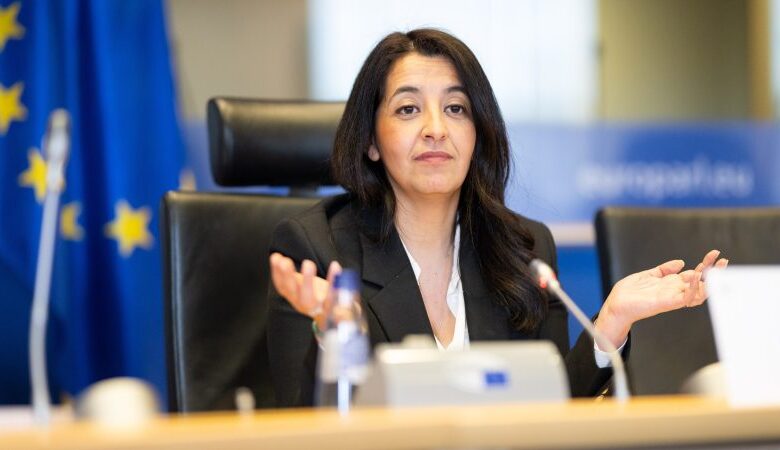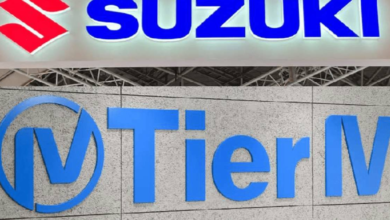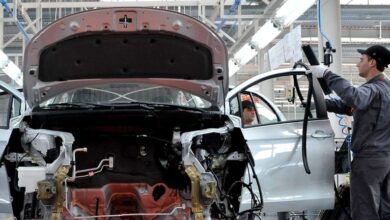Outgoing EU parliament transport chair Karima Delli talks trains, planes and automobiles – Euractiv

Set to bid farewell to the European Parliament after three successive terms, French Green MEP and chair of the Transport Committee Karima Delli told Euractiv that the biggest achievement of her time there is bringing transport high on the agenda.
During Delli’s presidency of more than seven years, the committee adopted 54 texts, shaping a sector that is an integral part of citizens’ daily lives and responsible for around 30% of the EU’s greenhouse gas emissions.
Delli is most proud of raising the profile of a committee which she says was previously “under-recognised, highly masculine and reputedly conservative,” saying that “my greatest achievement is to have brought the issue of transport to the forefront.”
Victories and disappointments
Keen to focus on her decarbonisation achievements, she said climate action has been a guiding star.
With the introduction of a ban on sales of internal combustion vehicles in 2035 and the deployment of electric car charging infrastructures, “we have sent a very clear message to the car industry, which would (otherwise) still have exploited every last drop of oil,” she said.
She also points to the adoption of minimum targets for using sustainable fuels in aircraft and the obligation, from 2030, for all ocean liners to use electric power when docked rather than burning fuel in port.
Despite these successes, Delli rues the adoption of texts which she considers insufficiently ambitious, such as the Euro7 rules, which target the reduction of road transport emissions.
“I’m pretty angry because seven years after the committee of enquiry (chaired by Delli following the Dieselgate scandal), the elephant has given birth to a mouse. We have new standards that will change little or nothing,” she regrets, at a time when 300,000 people die every year from air pollution in Europe.
The other negative note is the recent adoption by the European Parliament of a directive authorising the use of ‘mega-trucks’ in Europe. For Delli, this text will “kill the Green Deal” by allowing trucks weighing more than 40 tonnes to drive across the bloc.
France is one of the few countries opposing the move, and Delli calls upon the government “to be a citadel under siege” and “to say no” when the national transport ministers meet to consider the file on 18 June.
Looking to the future
Although Delli can no longer sit in the European Parliament due to her party’s internal rules on consecutive mandates, she still has clear views on future European policy and does not limit herself to transport issues.
First and foremost, “the Green Deal must not be half-hearted; it must set a very strong pace,” she argues, but cautions that “we will have to fight to defend the Green Deal and its implementation during the next mandate.”
To achieve the decarbonisation targets, she believes we need more investment and has a clear idea of where the funds can come from. “We’re going to have to pay for the decarbonised economy with the carbon economy”, pitches the green politician.
To this end, she calls on the next Transport Committee to fight for “a special recovery plan for transport”, similar to the Green Deal but focused on rail, aiming to make train tickets cheaper than plane tickets.
Delli believes that “Europe must once again become the continent with the most solidarity” through a fairer distribution of European funds.
She is focused on the opportunities and threats posed by the EU’s new emissions trading scheme (ETS 2), which will price carbon from heating buildings and road transport from 2027.
On the one hand, “We can’t have yellow jackets on a European scale”, Delli warns, referring to the risk of popular reaction against higher fuel prices.
On the other hand, public funds generated by ETS2 could enable the development of public transport and accelerate the opening of rail lines. In Dalli’s view, ETS2 can also provide the revenues needed for a “real” European social fund to support the most disadvantaged households via annual rail season tickets, which she calls “climate tickets”.
Finally, she hopes that her successor will also defend the idea of a ‘made in Europe’ approach to constructing electric cars, based upon European protectionism similar to the current American model.
Looking back at her almost fifteen years in the European Parliament, Delli told Euractiv, “I am sure of one thing: wherever I am, I will always fight for the European project”.
[Edited by Donagh Cagney/Alice Taylor]
![DVIDS – Images – Planes, Trains and Automobiles! 811th FSS visits Dulles Airport [Image 4 of 4] DVIDS – Images – Planes, Trains and Automobiles! 811th FSS visits Dulles Airport [Image 4 of 4]](https://europeantech.news/wp-content/uploads/2024/05/1716404420_159_1000w_q95-390x220.jpg)


